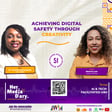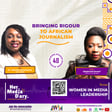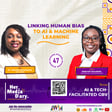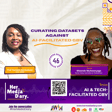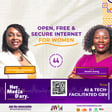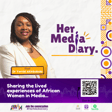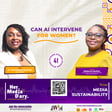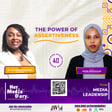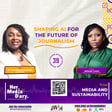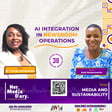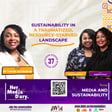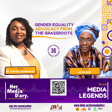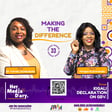
Her Media Diary Episode 45: “Regulating AI: Who's Responsible for Gendered Harm?” with Dr Grace Githaiga
Dr. Grace Githaiga is the CEO at KICTANET and a visionary leader with over 20 years of expertise in ICT policy advocacy. She spearheads progressive advocacy for inclusive ICT policies on data protection, cybersecurity, gender, accessibility, and civic digital rights.
In this episode, she joins us to unpack what feminist digital justice really means in the age of AI, and why we must act now to make our digital futures safe and inclusive for all. She encourages women to learn to report cases of Tech-facilitated GBV both to law enforcement agencies and tech platforms. According to her, these platforms would most likely be moved to action when they have so many people reporting cases of abuse as against when it is just a few persons.
Subscribe, leave a review and share this episode with someone who needs to hear it.
If you’d like to join an episode of this podcast, send an email to yemisi@africanwomeninmedia.com. Or visit our website at www.hermediadiary.com
Subscribe and follow Her Media Diary on all your favourite podcast platforms, Also, tune in to our partner radio stations from anywhere across Africa. And don’t forget to join the conversation using the hashtag, #hermediadiary.
